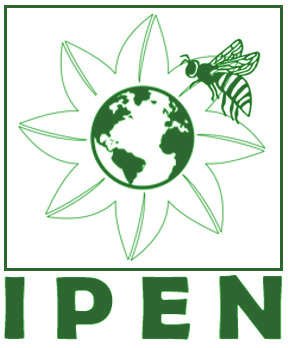IPEN is currently dormant apart from maintaining this website. IPEN was most active from 2017 to 2023, and in that period IPEN has:
- Undertaken and published the results of a first global survey of permaculture teachers to establish needs, gaps and priorities, across different languages and cultures, the valuable results of which you can read here:
- Produced a selection of Case Studies on successful Lush Spring Prize projects with high positive impacts in regeneration, agroeclogy and permaculture with more steadily being produced with the aim of having 20+ case studies and good practice covering key areas of permaculture education and demonstration by Spring 2019
- Was part of the Education Working Group for EuPN, the European Permaculture Network (EuPN: Europe’s network of national and regional permaculture associations and organisations) – the emergence of EuPN followed on from the very successful European Permaculture Teachers partnership project, an excellent example of international education collaboration
- Partnered with a) 9 other EuPN members to apply for funding to start a 2 year European Regenerative Leadership Programme in 2019 to support and develop permaculture pioneers and leaders in Europe, and the organisations they are part of, including its young pioneers; b) Ecolise and 9 of its members to apply for 3 years of funding to create a blended learning platform for transformative education focused on community led learning on sustainability and climate action.
- Developed a European partnership project to promote and support LAND Centres and other types of permaculture learning & demonstration projects through the iACT (Activating Community Transformation project. See the iACT & LAND Centres Handbook and iACT resources webpages
- Promoted the role of permaculture learning and demonstration centres (particularly in countries where English is not the first language) including developing an iLAND Working Group – see iLAND Centre pages here
- Built an initial contacts database;
- Delivered funded tasks within the 52 Climate Actions project, coordinated by PIRN (Permaculture International Research Network) including a project to pilot Climate Action Training alongside Retrosuburbia training and events, led by Permaculture South Australia;
- Collaborated with Ethical Consumer Research Association and the Permaculture Association (Britain) to try to develop Ethical Lifestyle Training (2019-20);
- Helped plan and organise a 1/2 day Permaculture & International Development taster event on 18th April 2018 (in London), and supported a new Permaculture for Development Workers course delivered in September 2018, led by Chris Evans and Gisele Henriques;
- Participated in the formation of ‘Permaculture CoLab’ with this IPEN website being a pilot project for collaborative working for CoLab’s Digital Circle;
- Launched this website to make valuable resources available and accessible to a large number of people involved in the development of permaculture education systems and activities;
- Presented a session on IPEN to engage input from a wide audience and contributed to related sessions at IPC2017 India – see ipen_ipc_2017_presentation.pdf – and participated very actively in the 2018 European Permaculture Convergence and Australian Permaculture Convergence
- Secured £13,500 funding (from Ecoforest Garden Trust), to support demonstration permaculture projects (iLAND Centres); IPEN was also selected as a winner in the Young Project category for the 2018 Lush Spring Prize (£20,000)
- Identified a range of funding opportunities for support of a) IPEN core activities, and b) collaborative projects with partners.
IPEN still recognises the need for the following activities to be taken forward by national and international collaborations within the permaculture movement:
- Create a strong and diverse collaborations between networks of educators and those working on development of education systems (i.e. through Working Groups).
- Maintain an interactive online platform for permaculture educators and learners
- Translate, adapt and create teaching resources across languages for the majority world, including core curriculum guides for existing courses and new courses
- Help to establish international Diploma and Teacher Training systems for those countries where no Diploma or Teacher Training system exists, to complement and learn from countries with well-established Diploma and Teacher Training systems.
- Promote and support best practice models for post-PDC follow-up such as ‘coaching for permaculture’ and the 2 design Certificate in Applied Permaculture Design, and develop ways to monitor and improve the effectiveness of permaculture education.
- Support the formation of independent teachers’ guilds.



Leave a Reply